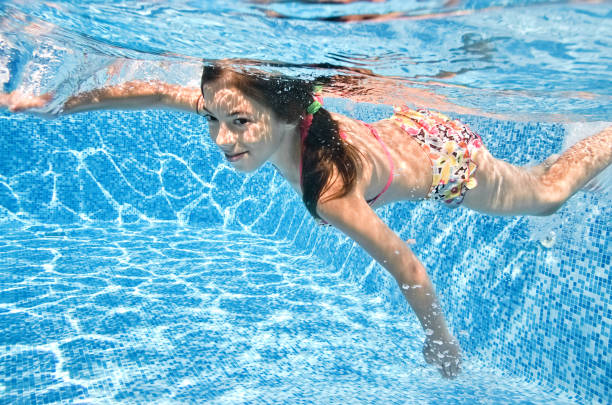Introduction:
As the seasons change, so too does the environment around us, including the temperature of our surroundings. For pool owners, these temperature fluctuations can have a significant impact on the chemistry of their pool water. In this article, we’ll explore the effects of temperature on pool chemistry, comparing the differences between summer and winter conditions.

Understanding Pool Chemistry:
Before delving into the effects of temperature, it’s important to understand the basics of pool chemistry. The pH level, alkalinity, and chlorine concentration are crucial factors that determine the quality and safety of pool water. Maintaining the right balance of these elements is essential for a clean and healthy swimming environment. However, external factors such as temperature can influence these chemical parameters.

Summer Influence on Pool Chemistry:
During the summer months, temperatures tend to rise, leading to increased evaporation and higher water temperatures in swimming pools. This rise in temperature can accelerate chemical reactions within the pool water, affecting its pH and chlorine levels. The Impact of Temperature on Pool Chemistry: Summer vs. Winter becomes apparent as the warmer weather encourages the growth of algae and bacteria, necessitating higher levels of chlorine to maintain water sanitation.
Moreover, the higher temperatures in summer can cause the pool water to become more acidic, leading to a decrease in pH levels. This acidic environment not only affects the comfort of swimmers but also corrodes pool equipment and surfaces if left unchecked. Therefore, pool owners must monitor and adjust the pH levels more frequently during the summer months to prevent these issues.

Winter Influence on Pool Chemistry:
In contrast to summer, winter brings cooler temperatures that can have a different impact on pool chemistry. The colder weather slows down chemical reactions, resulting in decreased evaporation rates and lower water temperatures. The Impact of Temperature on Pool Chemistry: Summer vs. Winter is notable as the reduced evaporation minimizes water loss and helps maintain stable chemical concentrations in the pool.
However, despite the lower temperatures, winter poses its own challenges for pool maintenance. The use of pool heaters to counteract the cold can affect pH levels, potentially leading to an increase in alkalinity. Additionally, reduced sunlight exposure during winter months can decrease chlorine effectiveness, allowing algae and bacteria to thrive if proper precautions are not taken.

Maintaining Pool Chemistry Year-Round:
Regardless of the season, maintaining optimal pool chemistry requires regular testing and adjustments to ensure the safety and comfort of swimmers. In summer, frequent monitoring of pH and chlorine levels is essential to combat the effects of higher temperatures and increased usage. The Impact of Temperature on Pool Chemistry: Summer vs. Winter underscores the importance of using stabilizers to prevent chlorine degradation from UV exposure during warmer months.
In winter, focus on balancing alkalinity and pH levels becomes paramount, especially when using pool heaters. Routine maintenance tasks such as skimming, vacuuming, and cleaning the pool filter should also be continued throughout the year to prevent the buildup of debris and contaminants. By staying proactive and diligent in pool care practices, owners can enjoy crystal-clear water regardless of the season.

Conclusion:
The Impact of Temperature on Pool Chemistry: Summer vs. Winter highlights the dynamic nature of pool maintenance in response to changing environmental conditions. While summer brings warmer temperatures that accelerate chemical reactions and promote algae growth, winter presents its own set of challenges with colder weather and reduced sunlight. However, by understanding these seasonal variations and implementing appropriate measures, pool owners can ensure that their swimming pools remain clean, safe, and inviting year-round.

I like this web site very much, Its a really nice place to read
and incur info.Money from blog